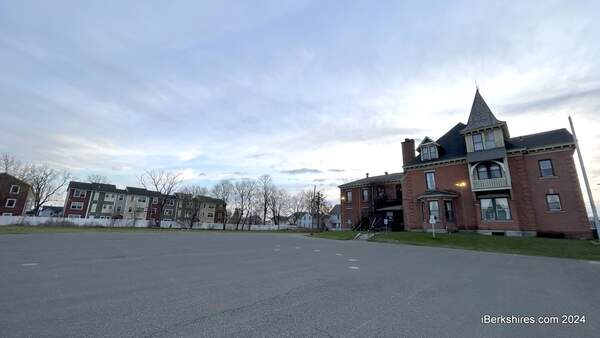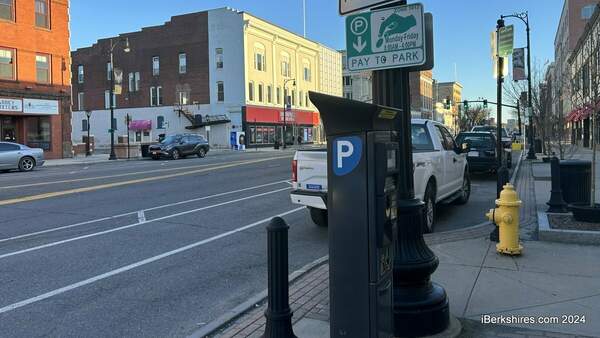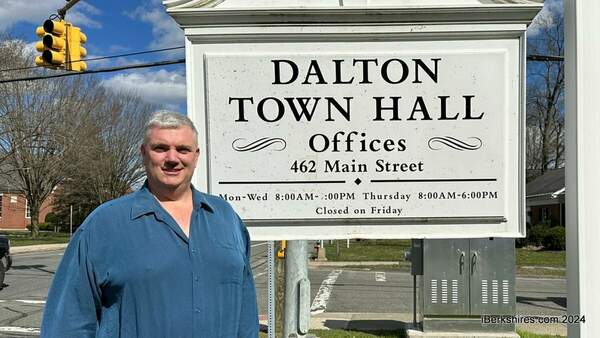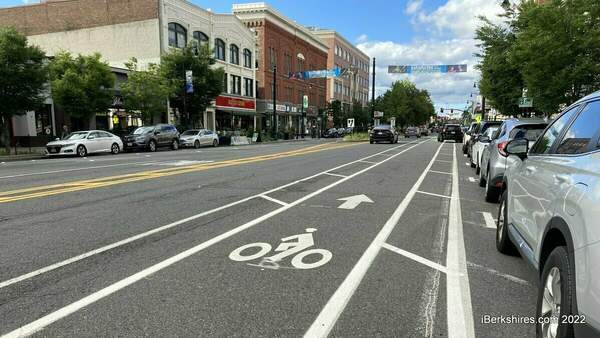Past and Present Mayors Weigh in on Pittsfield Charter
.jpg)
Mayor Daniel Bianchi, third from left, and his predecessors Gerald Doyle, James Ruberto and Edward Reilly gave their perspective on the city's governmental structure to the charter committee. |
PITTSFIELD, Mass. — Four Pittsfield mayors shared insights Tuesday from decades of combined experience in local government as part of an ongoing search for input by the city's Charter Review Study Committee.
Past Mayors Edward Reilly, Gerald Doyle and James Ruberto joined current Mayor Daniel Bianchi in offering both general and specific recommendations to the committee, which is tasked with reviewing the current charter that governs local government and proposing an updated charter document to the city over the next few months.
The four mayors, some of whom have been fiercely opposed to one another in past political contexts, expressed close agreement on many key issues pertaining to the structure of local government, such as increased mayoral term lengths and opposition to the concept of a city manager position.
Significant unanimity was also expressed on the subject on strengthening the mayoral role, particularly with regards to the appointments of staff members.
"I really think we should have a strong mayor form of government," said Bianchi, a former city councilor, adding that Pittsfield residents tend to look to the person in that position to be able to make major decisions. "We tend to have too much management by the City Council, and I think that city government would be vastly improved if we change that dynamic."
"I believe progressive government demands that we give the mayor the time and the authority to move his agenda forward," said Ruberto, who suggested that most appointments should not be subject to City Council approval, with the exception of police and fire chiefs and the city solicitor. "To name his people, because the voters are going to hold him or her accountable for the performance of city government, and the way in which it does everything from clean the streets to serve veterans affairs."
"Realistically, I think the city would be better served by a stronger mayor type of government," agreed Reilly, who served as mayor from 1992-1998, as well as five years as Pittsfield's city solicitor. Reilly concurred that other than such roles as police and fire, he could see no reason for staff appointments to have to go through the City Council.
All four mayors spoke favorably about the concept of increasing the term of Pittsfield mayors from two years to four years, echoing one another's sentiments that this continuity was important to the completion of large projects in the city.
"I'll give you a couple of reasons why: Central Block, Legacy Bank building, CompuWorks, Greylock Federal, Colonial Theatre, PEDA," said Doyle, citing off "just a few" long-term projects and downtown developments that had spanned multiple years.
Ruberto said that as an executive position, the mayor's job "requires some time to learn, some time to address issues from previous administrations, and requires the opportunity then to lay forward a true agenda that communicates to the people of Pittsfield, and that would give the people of Pittsfield enough time to view the performance of that position in a positive or negative light."
The concept of introducing a city manager instead of or in addition to a mayor was universally opposed by the four. The city manager possibility is one of three major options for city government in the commonwealth that the charter committee has been examining. While about three-fourths of all Massachusetts cities have a mayor as their municipal executive, the cities of Palmer, Franklin, Randolph, Watertown, Chelsea, Braintree, Southbridge, Winthrop and Barnstable have city managers in lieu of an elected mayor, while Lowell, Worcester and Cambridge have both a mayor and manager, with differing responsibilities.
"I totally disagree with the town manager concept," said Doyle. "I don't think Pittsfield is large enough to deal with a town manager and a mayor."
"I see reason, absolutely no reason at all why this city should consider a town manager," agreed Ruberto. "I do not believe that it is large enough, and I do not believe that a mayor need be distanced from the people by the workload that needs to be overseen in the city of Pittsfield."
On the legislative side of city government, the mayors encouraged the committee to examine different possibilities for changing the size of the council or its electoral makeup.
"We have a history of over-representation in the wards and under-representation at large," said Ruberto, who suggested a reduction to five wards, with six at-large councilors.
Reilly agreed that Pittsfield might be amenable to a reduced number of wards and overall council size. "In most of the cities that have a 'strong mayor' charter in their city, the standard is to have mostly at-large council, usually nine members," he said. (North Adams, which has a strong-mayor government, has nine councilors elected at large.)
"Anything we could do to depoliticize the management of our government, I think we can applaud," concluded Bianchi, who also emphasized his optimism about the eventual acceptance of what the committee ultimately comes up with for recommendations by the city of Pittsfield.
"I think we've got a quality Charter Review Committee, we have people who are thoughtful that were put on this board, and I think that the power of your opinion will prevail."
Tags: charter review, mayor,
.jpg)















